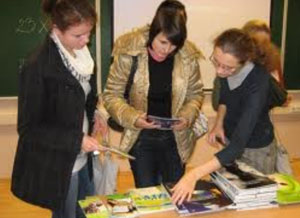- 2010/11/20
Why is the protection of national minorities’ rights so important and needed?


The stages of development, dilemmas, catalogues of national minorities’ right – these were the topics in which new knowledge was gained by the participants of the lecture, which was the second part of lectures titled “Improving skills in human rights in terms of the EU and international law.
The lectures triggered a gathering of a few tens of people in the House of Polish Culture on the 20th of November this year, who came to improve their knowledge about human rights and especially those of the national minorities.
The intolerance against other people was illustrated based on the examples of the bloody events of the 23rd of August 1572 in Paris, Wolyn – 1943, Rwanda – April to July 1994, Srebrenica – 11th of July 1995.
During the lecture it was highlighted that the need to protect national minorities is backed up by the necessity of avoiding international and domestic conflicts and by the fact that the protection of national minorities’ rights in countries as well as in the world.
Debating the different definitions of the term national minority, it was pointed out that in international law there is currently no universal definition for the term “national minorities”.
If for example the national minority is being bothered by the minority, will the majority be covered by protection that would otherwise be applied to the latter? It turns out that no, it will not. The mentioned majority would be in such case protected by general human rights. Another question is whether a national minority should be protected by special laws even if it seems to be integrated with the rest of the society (eg. uses the language of the majority).
The collective will of survival and solidarity expressed towards each other are the two criteria that are said to have the most meaning when deciding on the definition of national minorities.
If you want to find out more about human rights, including the rights of national minorities, there will more information released soon.
The lectures are organised by the Association of Polish Lawyers in Lithuania in cooperation with the European Foundation of Human Rights.
Translated by Kamil Szwarc within the framework of a traineeship programme of the European Foundation of Human Rights, www.efhr.eu.



